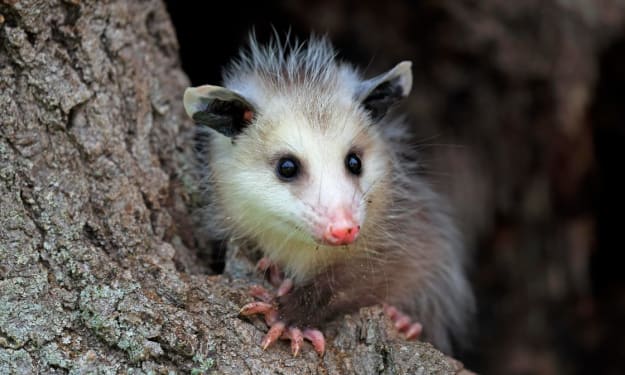No Mow May
Let Your Garden Go Wild And Help The Bees

Introduction
Corporations and the governments in their pockets are doing their damnedest to kill off bees because they see them as pests, seemingly totally ignorant of the fact that without bees, plants would not get pollinated and therefore will not grow.
I love the introductory words to "This Garden" by The Levellers
"The Blood, Sweat, and Tears Really Don't Matter,
Just Things That You Do In This Garden"
So No Mow May
Everyone wants their gardens to be pleasant and even tidy and I first became aware of No Mow May last year. I thought there may be a website for it but I can't find one although the name has apparently been sold so there may be one in preparation.
The main image in this is my lawn and garden which I last mowed in April and will not mow again until June. I am wondering whether this is me genuinely trying to help bees and butterflies, or me just being very lazy.
Although my laziness plays a big part, I am also aware that anything I do that helps the pollinators eventually will benefit me, by providing food for me to eat. Every living thing needs to eat and it always starts with plants.
That may be eaten by livestock that then provides you with meat and dairy produce, but not of this could happen without the pollinators.
This article in The Independent is quite amusing with stances both for and against No Mow May, with this paragraph being particularly pertinent.
Not mowing provides more habitat for bees and butterflies and more cross-pollination. Lawn pests like daisies can achieve full flower. And May is the best time of year to keep bees and butterflies happy because more flowers are in bloom.
Almost 90% of wild plants and 75% of leading global crops depend on animal pollination. One out of every three mouthfuls of our food depends on pollinators such as bees. Crops that depend on pollination are five times more valuable than those that do not.
The above information is taken from the WWF site here
I found this free ebook on the life of a bee which gives some information on how important they are to the continued existence of human life on this planet.

Being Friends With Bees
I have always tried to make sure that my green areas are supportive of bees and butterflies. I used to religiously pull up dandelions and daisies but now I generally let them be, knowing they are favourites of bees. Since I started doing that I cannot say our gardens and green areas have suffered and I do love to see bees at work.
I also make sure in hot weather that there is water available for bees as well.
I will make sure that all our green areas are bee friendly and that is my main reason for taking part in No Mow May, not the fact that I am extremely lazy.
This is from the Soil Association which gives us mor important information.
We need bees to fertilise many of our crops. Butterflies, moths and other insects pollinate too, but bees are estimated to provide billions of dollars' worth of pollination services to farmers worldwide. Many of the world’s food crops depend on insect and animal pollination to some degree, and pollinators are essential for growing many different fruits, nuts and berries. There are around 70 crops in the UK that depend or benefit from bee pollination.
Pollination by honey bees, wild bees and bumblebees is incredibly valuable for farmers. It is estimated that it would cost UK farmers £1.8 billion a year to pollinate their crops manually if wild bees disappeared. Clearly, it would be an incredibly laborious and enormously expensive task for farmers and growers to manually pollinate their trees and crops, but sadly this is already the case in some parts of China where natural pollinators have disappeared.
Conclusion
I am doing No Mow May, if you have your own green areas it would be gret if you joined too.
Reader insights
Outstanding
Excellent work. Looking forward to reading more!
Top insights
Eye opening
Niche topic & fresh perspectives
Easy to read and follow
Well-structured & engaging content
Expert insights and opinions
Arguments were carefully researched and presented
On-point and relevant
Writing reflected the title & theme
Compelling and original writing
Creative use of language & vocab
Heartfelt and relatable
The story invoked strong personal emotions






Comments (8)
I don't have daises growing in my lawn :( but it was really interesting to read about how not mowing can help when they do. I might have to plant some daisies in the garden bed come spring (it's June, winter in Australia right now). A good read, thank you for sharing!
I never mow mine. I'm lazy. But also bees! Typo in this line: "I also make sure in hot water that there is water"
no mow may. The snakes or their way to be helped.
Great article, nicely informative on a vitally important issue.
As a suburban hive owner I applaud and endorse this in every way! A very good article with The Levellers! (NMA fan from way back)
Fantastic! World Bee Day is on the 20th of May, and I wholeheartedly support this message. Other things you can do to help pollinators is to create a haven of native plants, rather than just having a lawn of grass.
Planting flowers bees love , great story to write about for the month of May 🥰
In the USA website it’s called bee city USA.org